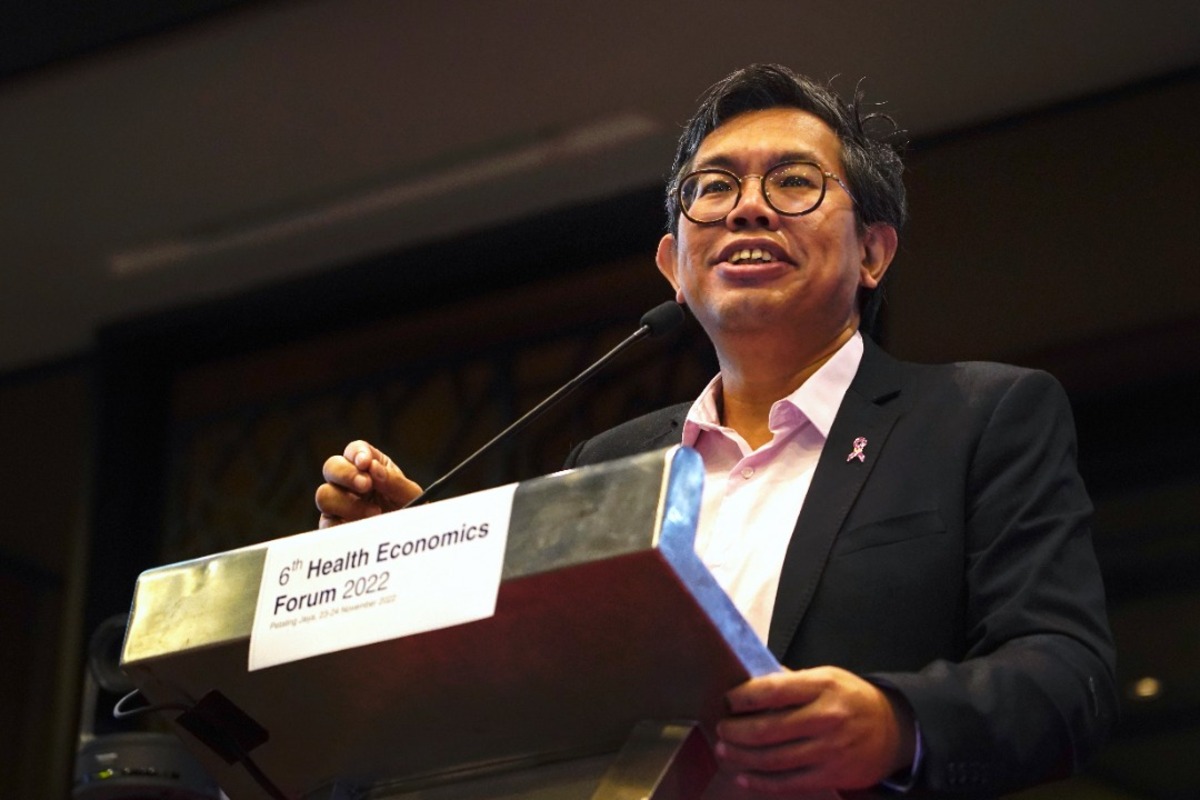The health allocation under the federal Budget 2023 tabled in Parliament today sets an optimistic tone towards tackling teething problems in recruiting and retaining health care workers, modernising ageing infrastructure, decongesting public health facilities, and addressing emerging public health threats such as vape and e-cigarettes.
However, it falls short on issues such as sustainable health care financing.
In terms of allocation, at RM36.3 billion, this Budget signals a slightly greater commitment to health compared to the previous Budget proposed by the Ismail Sabri administration at RM36.1 billion.
At 12 per cent, it is by far the biggest percentage of increase for the Ministry of Health’s (MOH) budget in the past five years. It is also the highest in absolute terms and is 9.4 per cent of the total budget of RM388.1 billion.
From the total of RM36.3 billion allocated, MOH will have RM31.5 billion for its operating expenditure and RM4.827 billion for development expenditure.
It is sobering to note that the allocation for operational expenditure alone now exceeds the total allocation for health in the 2020 budget, which was RM30.84 billion, which was just two years ago.
It is particularly encouraging to see the government’s commitment to addressing the health care worker shortage crisis with an allocation of RM3 billion for new permanent and contract positions, inclusive of more than 1,500 medical officers, dental, and pharmacy officers.
We hope that this will also include nurses, allied health workers, and supporting staff who are critical to the health system.
The government must also demonstrate commitment to not only recruiting new personnel, but also funding the promotion of existing staff and increase salaries to support retention of skilled health care workers.
It was heartening to hear the government confirming its commitment to the Generational End Game objective for tobacco and vape. The fact that it has announced the earmarking for health of half of the future revenue to be collected from the regulation and taxation of e-cigarettes and vape containing nicotine is certainly welcome.
The Galen Centre has been a strong advocate of earmarking such revenue from tobacco and alcohol excise duties for the purposes of health. However, we note that this proposal does not include vape without nicotine.
The Malaysian vape industry, estimated to be worth more than RM2 billion, is largely made up of no-nicotine vape. Regulating and taxing only vape with nicotine and e-cigarettes will produce less than what the government expects. All vape and e-cigarette products should be taxed.
When will the revised version of the Control of Tobacco Product and Smoking Bill, which was worked on by a Parliamentary Select Committee last year, be tabled? We hope that with this declared intent to tax vape, it will be followed by the passage of the legislation. It is overdue.
The Skim Perubatan Madani or Madani Medical Scheme is potentially a game-changer. We have seen the proven public-private partnership models from Selangor and ProtectHealth.
By providing those who qualify to be enrolled in the scheme, particularly those from lower income households, with subsidised access to private general practitioner (GP) clinics at a national level, this scheme could significantly relieve the pressure and burden on congested emergency departments at public hospitals across the country.
There is also a massive increase in investment amounting to hundreds of millions of ringgit in critical infrastructure. This represents a strong and clear recognition that the repair, maintenance, and upgrading of existing and ageing structures and facilities, including modernisation and digitalisation of health information systems, is long overdue.
This will potentially translate to improved efficiency, shorter patient waiting times, and better delivery of health services. Out of Malaysia’s more than 156 public hospitals, 45 are over 100 years old.
Unfortunately, for the first time, non-communicable diseases (NCDs) have not been mentioned in the tabling of the federal budget. Previous speeches have recognised that this country is going through an NCD crisis, with one in five people living with diabetes, three in 10 with hypertension, 3.4 million currently living with at least two NCDs, and half of the adult population being either overweight or obese.
The increasing usage and burden on the public health care structure is symptomatic of this crisis. More must be done to prevent the onset of non-communicable diseases.
As it was with the Budget of the previous administration, it is again disappointing that there is no mention of any commitment to addressing the issue of sustainable health care financing and investing in a sustainable long-term solution.
In order to ensure that Malaysia’s health care system is able to continue to provide quality, affordable, and accessible health services for all in the decades to come, and to tackle the challenges of preventing and treating NCDs, of mental health, and of an ageing population, the government must commit itself to finding a way forward on this question.
Finally, teaching hospitals under the Ministry of Higher Education were again shortchanged when their allocations remained relatively similar to what they had received in previous years.
Despite playing a major role in responding to the Covid-19 crisis and still managing caseloads across the country, our teaching hospitals appear to have been forgotten.
Besides carrying out their core function of educating future health care workers, including nurses and doctors, we need to ensure that such facilities are prepared and equipped to handle any infectious disease outbreak in the future, as part of Malaysia’s epidemic preparedness and response strategy.
Azrul Mohd Khalib is the chief executive of the Galen Centre for Health and Social Policy.
- This is the personal opinion of the writer or publication and does not necessarily represent the views of CodeBlue.






